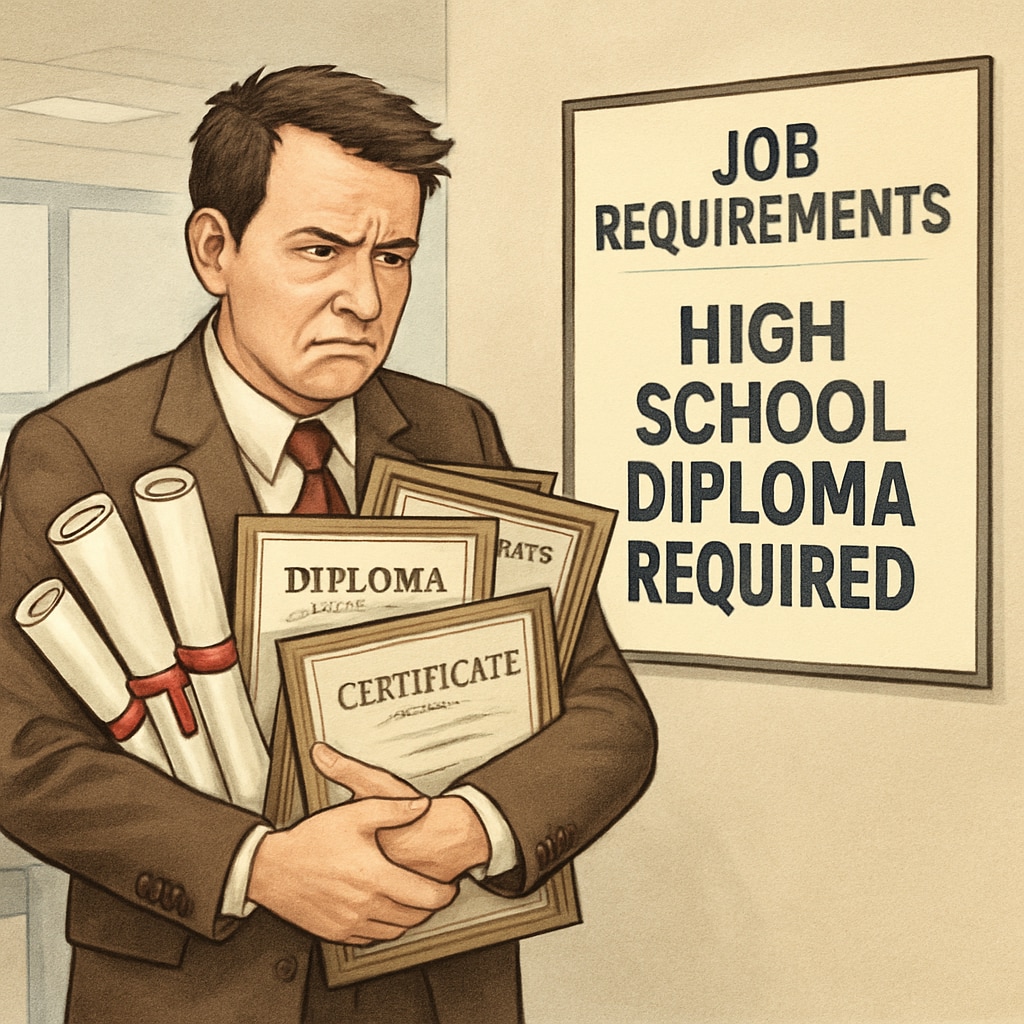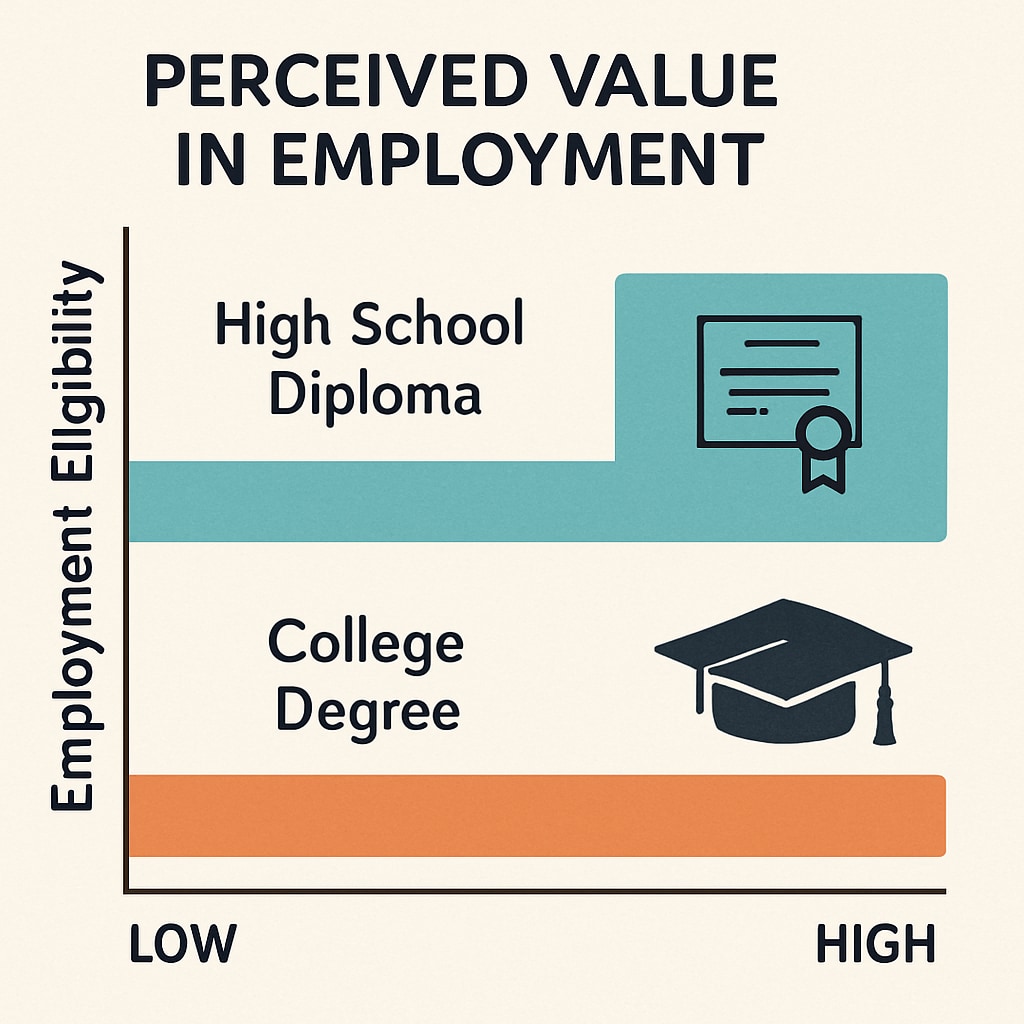In Arizona’s job market, a peculiar paradox has emerged: employment eligibility often prioritizes a high school diploma over advanced degrees. This contradiction highlights a concerning misalignment between educational achievements and workplace qualifications. While college degrees are traditionally seen as pathways to better opportunities, many professionals find their qualifications dismissed due to rigid high school diploma mandates. This raises critical questions about the validity and equity of such employment requirements.
The Employment Eligibility Paradox in Arizona
Arizona’s employment requirements have created a scenario that undermines the value of higher education. For instance, some state positions mandate proof of a high school diploma, even if an applicant possesses multiple college degrees. This rigid rule can disqualify highly educated candidates who may lack documentation of their high school education, despite their advanced qualifications. As a result, the system inadvertently favors minimal educational benchmarks over significant academic achievements.

Such policies stem from outdated regulations that fail to consider the evolving dynamics of education and work. They reflect a one-size-fits-all approach to eligibility, ignoring the skills and knowledge that higher education provides. This discrepancy not only affects job seekers but also limits the talent pool available to employers.
Why Higher Education Isn’t Always Enough
One might assume that earning a college degree automatically supersedes the need for basic educational credentials. However, in Arizona, this isn’t always the case. The reliance on high school diplomas as a universal requirement stems from administrative convenience and historical precedent. Unfortunately, this approach overlooks the broader scope of an applicant’s qualifications and capabilities.
For example, in professions requiring specialized knowledge—such as engineering, healthcare, or technology—college degrees typically indicate a higher level of expertise. Yet, rigid bureaucratic processes often demand a high school diploma as an inflexible prerequisite, turning away otherwise qualified candidates. This policy not only wastes talent but also perpetuates a flawed evaluation system.

Bridging the Gap Between Education and Employment
To address this issue, Arizona and other states must reevaluate their employment eligibility criteria. A more inclusive system should recognize advanced education as an adequate substitute for basic credentials. This would require:
- Modernizing hiring policies to value higher education achievements.
- Providing alternative pathways for candidates who lack specific documents but possess advanced qualifications.
- Educating employers about the limitations of rigid eligibility requirements.
Furthermore, adopting a skills-based approach to hiring could help bridge the gap between education and employment. By assessing candidates based on their competencies rather than formal credentials, employers can foster a more equitable and effective recruitment process.
Conclusion: Rethinking Employment Qualifications
In the evolving job market, Arizona’s emphasis on high school diplomas over college degrees reveals a deeper issue: the misalignment between educational evaluation and employment needs. By modernizing eligibility requirements and embracing a more inclusive approach, the state can ensure that qualified individuals are not excluded due to outdated policies.
It’s time for Arizona—and other regions facing similar challenges—to rethink employment qualifications. A future-focused job market values skills, experience, and advanced education, ensuring opportunities align with the realities of modern work.
Readability guidance: This article utilizes short, concise paragraphs and lists to enhance readability. Overuse of passive voice and long sentences has been avoided. Transitions such as “however,” “in addition,” and “for example” are incorporated to maintain flow.


